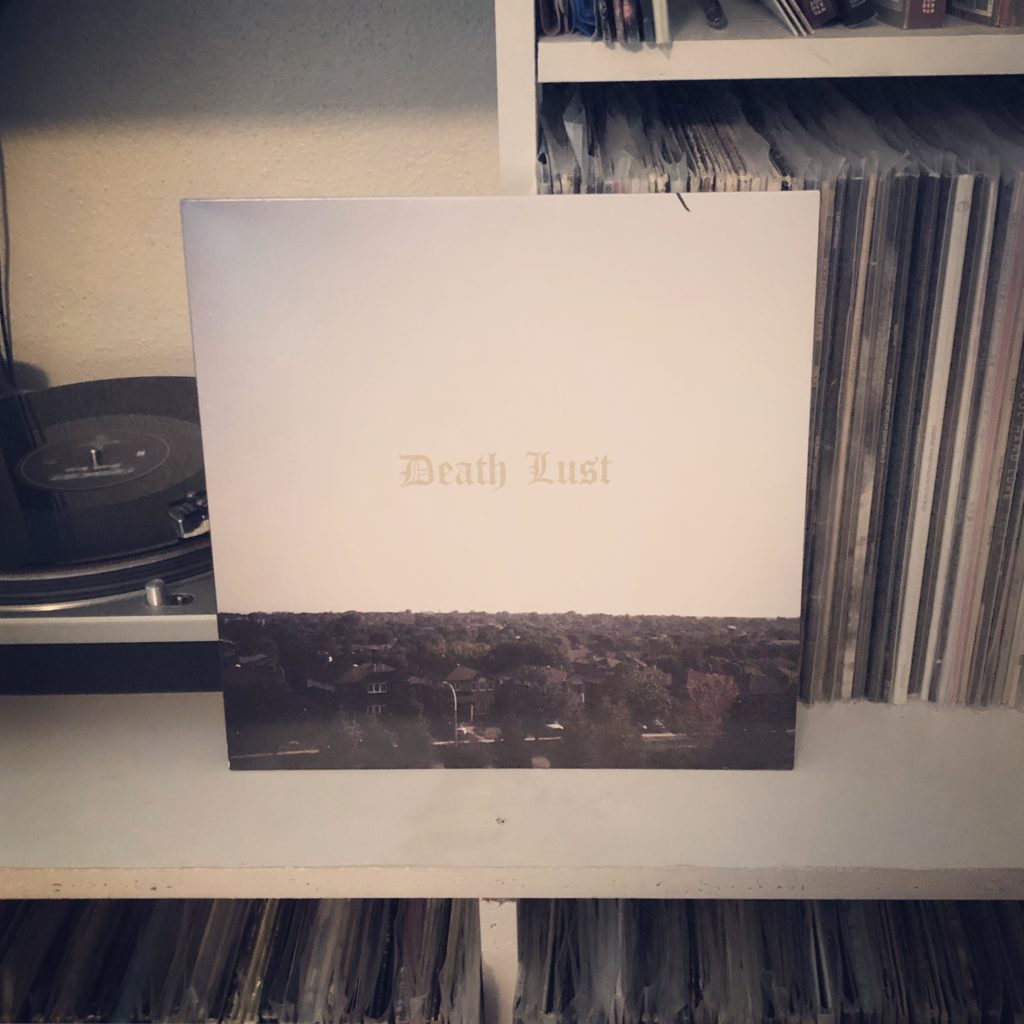
For the last few years, it’s been suggested by a number of music snobs (or at least by me) that we’re currently in a post-genre landscape.
While the dividing lines between, say, dream pop and post-hardcore have generally been laid out pretty clear, these days there’s so much cross-pollination between influences that music taxonomy is an almost fruitless undertaking.
Case in point: Death Lust, the debut record from Canadian solo project Chastity. When I went to add the files to my iTunes, the cursor sat in the “genre” tab for several minutes, blinking mockingly at me as I tried to put a name to this (I copped out and settled on “alternative”).
Across the ten tracks here, Ontario native Brandon Williams weaves anthems of suburban denouement and youthful existentialism, put to breezy indie rock (“Suffer“), HUM-esque guitar anthems (“Scary“), barking post-hardcore (“Anoxia“), and menacing noise rock (“Chains“). The record is roughly split across each side of the disc, with the dreamier, more melodic songs on the A side and the more frantic, shoutier songs on the B side.
And while there’s a distinct break between the two poles of his sound, the record is surprisingly consistent. It might hop between genres, but Williams knows exactly what Chastity’s voice sounds like. The songwriting is spot on throughout the different extremes of his sound. The guitars might alternate between shoegazy walls of noise and punk riffage, but it’s unmistakably the same tone through the different songs. As his voice moves between breathy sighs and hardcore yelps, it never sounds like he’s trying to be someone else. Rather, it’s the voice of a man with a multitude inside of him—and the tools to express them.
Nowhere is Williams’ gift for merging disparate influence and moods more evident than the centerpiece tracks and “Heaven Hell Anywhere Else” and “Negative With Reason to Be.” “Heaven” closes the first side, its verses riding a roadtrip-ready guitar riff and lazy vocal melody. The chorus explodes, the guitars pushing the amplifiers through brooding riffs and crashing drums. “Negative” opens the punkier second half with scraping guitar chords and punishing drums, Williams’ voice alternating between a tense melody and a shout. It sounds like a METZ B-side—and that’s high praise.
Also of note: those are the only two titles that are longer than a single world, and they’re arranged on the record so that the tracklist on the back forms a cross. It might seem like a gimmick, but it betrays a careful intentionality that escapes most punk bands. And it’s that deliberate mindfulness that makes Death Lust a record worth paying attention to.